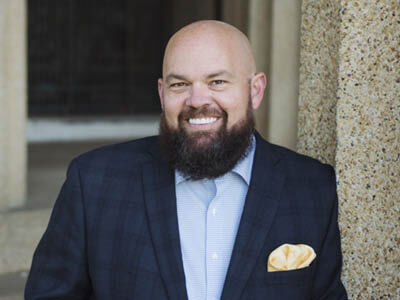Things to know about federal law enforcement activity in Chicago, Portland, Memphis
News > National News

Audio By Carbonatix
1:01 PM on Sunday, September 28
By ADRIAN SAINZ and SOPHIA TAREEN
MEMPHIS, Tenn. (AP) — Armed federal agents patrolled Chicago’s downtown streets on Sunday and President Donald Trump called up 200 National Guard troops for deployment in Portland, Oregon, a move strongly opposed by the governor that immediately prompted a lawsuit saying Trump overstepped his authority.
The latest examples of creeping federal law enforcement and military presence in U.S. cities occurred as Memphis prepares for the arrival of additional federal authorities, including immigration and drug enforcement agents, that Republican Tennessee Gov. Bill Lee says he expects will happen this week.
In Chicago on Sunday, dozens of armed federal agents, in full tactical gear, walked the streets of some of the city's most prominent tourist and shopping areas. That comes amid a surge of immigration enforcement that began early this month, including repeated conflict at an ICE building in Broadview, west of Chicago, where federal authorities on Friday and Saturday fired pepper balls and tear gas at protesters.
Trump's troop order came a day after he said on social media that he was directing the Department of Defense to “provide all necessary Troops to protect War ravaged Portland.” Trump said the decision was necessary to protect U.S. Immigration and Customs Enforcement facilities. Gov. Tina Kotek said Trump's description was a false narrative meant to spur conflict.
The moves follow Trump’s crime crackdown in the District of Columbia and actions in Los Angeles in response to immigration protests that turned violent with the arrival of troops.
Here's a rundown of potential and current federal law enforcement activity in Chicago, Portland and Memphis.
On Sunday, federal agents marched along Michigan Avenue, the Chicago River and upscale neighborhoods, attracting attention from shoppers and families dining at sidewalk cafes. Many used phones to record. Activists also trailed the U.S. Customs and Border Protection agents, blowing whistles and shouting.
Chicago Mayor Brandon Johnson and Illinois Gov. JB Pritzker blasted the sudden physical show of force.
“While Chicagoans and visitors are enjoying another gorgeous Sunday, they are being intimidated by masked federal agents flaunting automatic weapons for no apparent reason,” Johnson said in a statement.
Pritzker echoed the sentiment.
“This is not making anybody safer — it’s a show of intimidation, instilling fear in our communities and hurting our businesses,” Pritzker said in a statement.
Gregory Bovino, a Border Patrol agent central to the Los Angeles immigration crackdown, was among the agents who walked several miles near downtown.
Federal officials have said the Chicago surge was intended to arrest “the worst of the worst” people in the country illegally and with criminal records. Bovino told The Associated Press that agents had made “several arrests” but declined to give specifics on whether the patrols downtown were aimed at specific people.
“We’ve always got a target that’s anyone who is here illegally,” Bovino said.
Over the weekend, tension rose outside an ICE building in suburban Broadview about 12 miles (19 kilometers) west of Chicago. On Friday, agents repeatedly fired chemical agents toward a crowd of over 100 protesters after some of the group attempted to block a car from driving down a street toward the ICE building. Pepper bullets and tear gas canisters went into the crowd, most of them standing away from the fence and not blocking traffic.
Protesters and reporters described similar scenes on Saturday.
Broadview’s mayor criticized ICE for actions she said have endangered local police, firefighters, residents and protesters. Broadview police also launched a criminal investigation of an “unprovoked attack” on the vehicle of a WBBM-TV Chicago reporter, alleging a chemical munition was fired by immigration agents.
In previous weeks, protesters had also tried to block agents’ vehicles from moving in or out of a yard next to the building.
Activists and family members of detainees have raised concerns in recent days that the facility meant to process arrestees is a de facto detention center plagued by inhumane conditions.
Trump previously threatened to send the National Guard into Chicago but has yet to follow through.
Trump said he ordered the 60-day deployment of Oregon National Guard troops to deal with “violent protests” that threaten the security of immigration detention facilities and other federal property.
He said the protests “constitute a form of rebellion against the authority of the Government of the United States.”
Protesters at recent demonstrations have numbered in the dozens and focused on the area around a single ICE building. Some federal agents have been injured and several protesters have been charged with assault. Some demonstrators also say they have been injured.
Kotek talked to Trump on Saturday and said the deployment was unnecessary. She refused to call up any Oregon National Guard troops and so Trump did so himself in an order to Defense Secretary Pete Hegseth.
“Putting our own military on our streets is an abuse of power and a disservice to our communities and our service members,” Kotek said. “And it is unlawful. And it will make Oregonians less safe.”
Oregon Attorney General Dan Rayfield said he filed a lawsuit in Oregon U.S. District Court against Trump, Hegseth and others on behalf of the state and the city of Portland. It seeks an injunction blocking any deployment on the grounds that Trump doesn't have authority because the situation doesn't constitute an invasion or rebellion or a situation where federal laws can't otherwise be executed.
“Oregon communities are stable, and our local officials have been clear: we have the capacity to manage public safety without federal interference,” Rayfield said . “Sending in 200 National Guard troops to guard a single building is not normal. If you had a concern about safety at your own home, you’d make a few calls and fill the gaps — not call in an army.”
Trump said earlier this month that he was creating a task force of federal law enforcement agencies to combat crime in Memphis. The city has experienced high numbers of violent crimes such as carjackings and homicides in recent years, but both Democratic and Republican officials have noted that the majority-Black city is seeing decreases this year in some crime categories.
Lee, the governor, has publicly said he would not expect more than 150 National Guard members to be sent to Memphis, though he’s said the numbers aren’t solidified. The city said Friday there won’t be tanks. The Guard troops won’t be making arrests and won't be armed unless local authorities request that, Lee said Friday.
It’s unclear when Guard members will arrive. Lee also said 300 Tennessee Highway Patrol troopers will be in the region.
Latinos in Memphis have expressed concern that ICE agents will increase their presence in Memphis and detain people who are in the country legally.
On Saturday, dozens of people marched to a plaza in front of City Hall to protest the law enforcement surge. Speakers at a news conference said that, instead of federal troops and agents, Memphis needs more funding for education, crime prevention, youth services and hospitals.
Oregon officials have made similar comments.
__
Tareen reported from Chicago.












